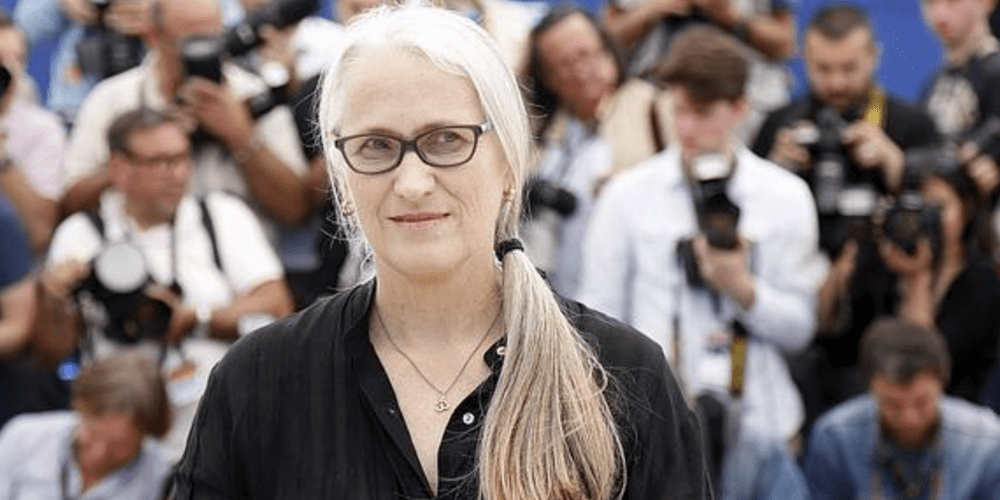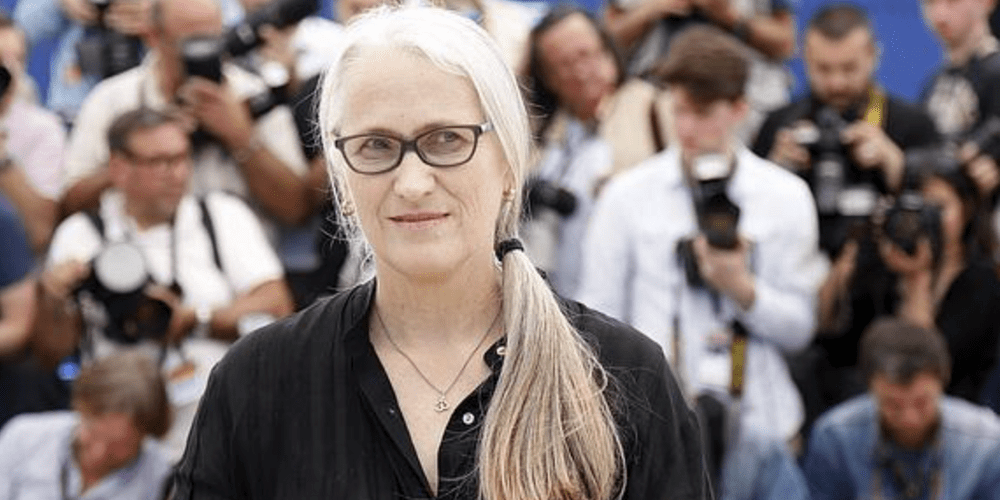Painstaking Precision: Detangling Hidden Meaning in "The Power of the Dog"
In "The Power of the Dog," Academy Award-winning director Jane Campion turns her focus to the '20s American West. Staff Writer Miles Garcia '25 analyzes the hyper-detailed film and its insights into toxic masculinity and lingering traumas.


There’s a shot in Jane Campion’s subversive new western film “The Power of the Dog” that I think encapsulates the entire film’s approach. Phil Burbank (Benedict Cumberbatch) points to the hills in the distance across the brown, sunset-covered land and tells his nephew Peter (Kodi Smit-McPhee) that while most people just see the hills, Phil’s mentor Bronco Henry saw—
“A dog,” interrupts Peter.
Then, only subtly indicated by the camera’s brief shift in focus towards the hills is the image of a dog with its mouth wide open, created by the overlapping shadows of the winding slopes. Situated in between scenes of stolen glances, sparse and incisive dialogue, and the writhing tension between Phil’s rugged individualism and his repressed fears, this moment can easily be missed. It’s the film’s central image, and Campion hides it in plain sight.
What I mean by this example is that, while the information presented in “The Power of the Dog” seems simple enough, the smallest details are also the most deliberate. The first hour or so of the film can slog while setting up, but once all the pieces have been stacked on top of each other, the mental process of figuring out exactly how they’re about to fall (or whether they’ve already fallen) leaves an uneasy pressure that lingers long after the film is over.
The story follows Phil and his brother George (Jesse Plemons) across 1925’s Montana. The two couldn’t be more different from each other. They both know how to herd in cattle, but Phil’s venomous outbursts of toxic masculinity provide a stark contrast to George’s quiet, tender demeanor. When George marries Peter’s mother Rose (played by Plemons’ real-life partner Kirsten Dunst), both Phil’s homophobic remarks toward Peter and his attempts at mentally toying with Rose grow stronger and more frequent.
At first these games appear to be an expression of Phil’s aggressive, Daniel Plainview-esque attitude — just another extension of an established western archetype. But Phil’s motives come into question as these flares of temper become more like defense mechanisms than manipulative attempts to wield power. He starts to take Peter under his wing. “We got off on the wrong foot,” says Phil. “Did we?” asks Peter. It isn’t long before they’re making rope and killing rabbits together, sharing the blood of their prey as Phil shares stories about Bronco Henry.
Campion always has something up her sleeve, even if she isn’t ever adamant about revealing quite what that something is. Every aspect of drama in “Power of the Dog” occurs in the silences, from which the genre-specific passages of cowboy dialogue are a mere distraction.
Cumberbatch also plays Phil more intricately than initially meets the eye. His performance is searing. He lights a room on fire with his eyes when he walks in, and one can envision that same flame extending to the dry plains of grass around him if he doesn’t keep it in check. Plemons plays an important foil who provides the audience a lens of moral reference through which to view the skewed principles of the other characters. Rose’s demons, like much of the film’s core character drama and psychosexual tension, reveal themselves slowly but meticulously. Whatever sympathy we might have for Peter — who could easily be read as a weak, lanky, emotionally manipulated teenager — starts to dwindle when his uncomfortable habits emerge to the foreground, like when he brings a rabbit home to dissect it in his study and drives away people who annoy him.
Each character has a rich history that may not be explicitly expanded upon, but the looks on their faces indicate deep, solitary traumas that all converge into a tornado of disturbing potential energy. Campion forces us to sit with that potential, never quite releasing it in a climactic gunfight but instead letting it simmer in the abstract implications of the plot and the character moments that float to the surface like small pockets of air.
The film is adapted from Thomas Savage’s 1967 novel of the same name, and its visuals feel as deliciously descriptive as is possible in a cinematic context. Director of Photography Ari Wegner paints a clean, concise picture of the Montana landscape despite shooting the film in New Zealand. The aforementioned shot of the dog on the hill is just one example of how the visual elements come together in a way that is both clear and hidden like ghosts that lie just at the edges of the frame.
Prolific film composer Jonny Greenwood of Radiohead fame imbues the film’s score with his trademark sense of impending dread. If Wegner captures the spirits of the past in the glistening glow of an afternoon horse-ride, Greenwood captures it in the haunted, creaking strings of his orchestra.
The film’s expressionistic traits are complemented strongly by the depiction of brutality that Campion seamlessly and deviously weaves into the atmosphere of animal hides and jangling boots. It’s an atmosphere where a cow’s distressingly real castration fits in as appropriately as the sound of a rabbit’s neck softly cracking. The west is wild, and the people living in it are wilder. Campion lays it on thick like a collection of sweat-stained journal entries, so that the realization of this violent world stays connected to the depraved characters at its center.
“The Power of the Dog” is not for everyone. Its glacial pace and refusal to put its central plot ideas above its carefully measured subtlety can make the film a frustrating experience. As is the case with all movies where hyper-detailed craft reigns before appeasing expectations, a certain amount of buy-in is required from the audience. Still, Campion makes the experience worth it for those who put in the effort; it may not be obvious during the film, but in the hours afterward, lingering thoughts remain, as if the truth sits just as plainly in sight as that dog in the shadows. Easy to see in theory, but you’ll need more time to figure out exactly where that shadow, and where this film, appears.





Comments ()